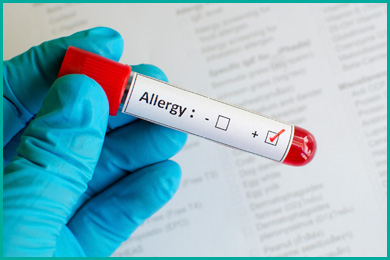If your total IgE levels are higher than normal, it likely means you have some kind of allergy. But it does not reveal what you are allergic to. A specific IgE test will help identify your particular allergy. If your results indicate an allergy, your health care provider may refer you to an allergy specialist or recommend a treatment plan.
Your treatment plan will depend on the type and severity of your allergy. People at risk for anaphylactic shock, a severe allergic reaction that can cause death, need to take extra care to avoid the allergy-causing substance. They may need to carry an emergency epinephrine treatment with them at all times.
Be sure to talk to your health care provider if you have questions about your test results and/or your allergy treatment plan.



 Contact Us
Contact Us






 Hospitals
Hospitals
 Doctors
Doctors
 Diagnostic
Diagnostic
 Pharmacy
Pharmacy
 Health Tips
Health Tips
 Blog
Blog

























Comments